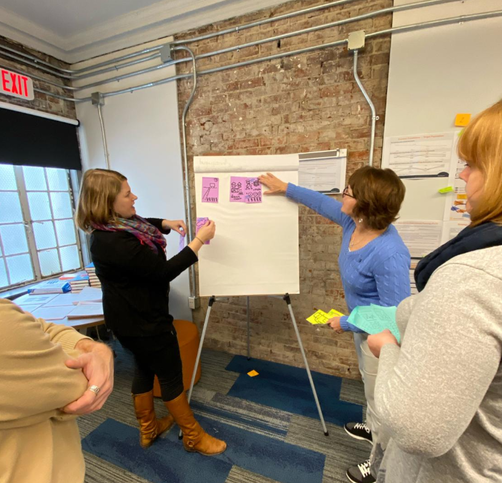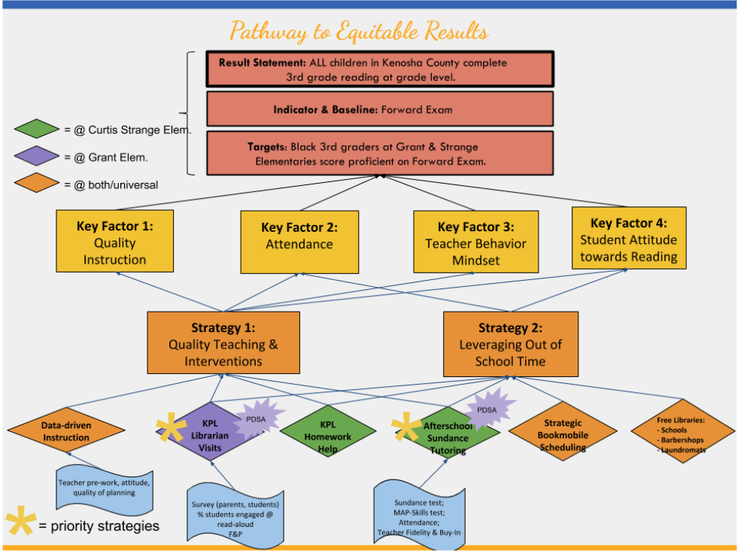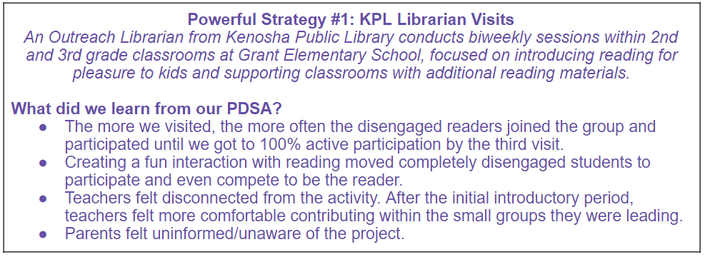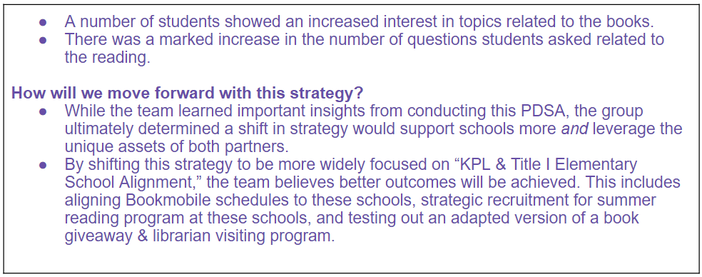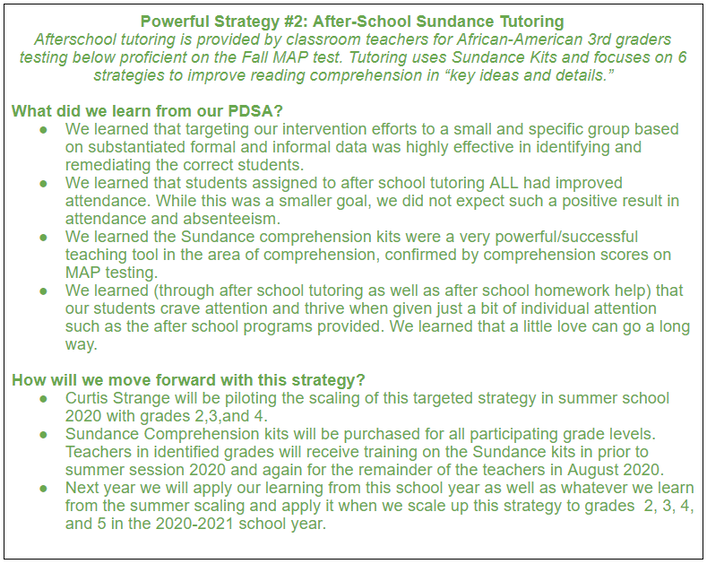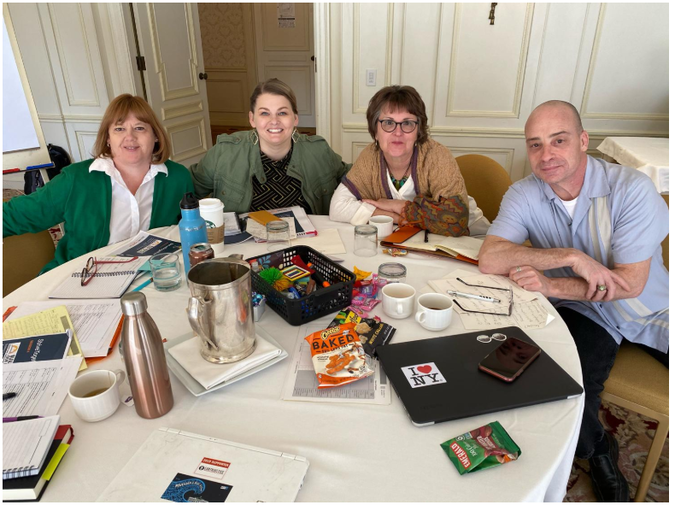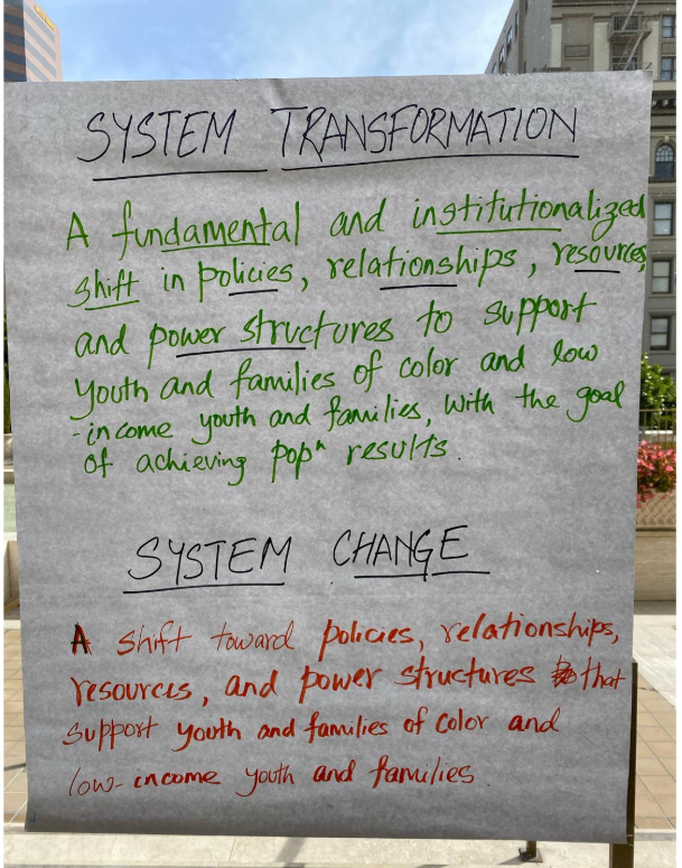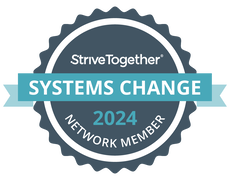|
In 2019, Building Our Future was offered the opportunity for a team of backbone staff and partners to be part of StriveTogether’s Equitable Results Series, an intensive 10-month program designed to equip us as leaders with skills in Annie E. Casey’s Results Count™* framework, including adaptive leadership, holding accountability for equitable results, and using oneself as an instrument of change. This is the first article in a 2-part series. In partnership with the Kenosha Public Library (KPL) and Kenosha Unified School District (KUSD), our team set out to improve early grade reading outcomes and decrease racial disparities at two elementary schools: Curtis Strange Elementary and Grant Elementary. By joining forces and leveraging different organizational strengths, our team's challenge was to demonstrate how, by focusing on data, continuous improvement, and adaptive leadership, we could start to move the needle in literacy outcomes at a student- and school-level. Before deciding what we would do, we had to start with the big result-- ALL children in Kenosha County complete 3rd grade reading at grade level. From there, we set a goal: 50% of 3rd graders overall at Grant Elementary & Curtis Strange Elementary score proficient in the 2020 Forward exam ELA (English-Language Arts), with 50% of Black 3rd graders scoring proficient. This goal was set using the idea of Targeted Universalism--that in order to move a population level results, we must target strategies towards the groups that are disproportionately burdened by the system, while also enacting universal strategies that will lead to changing systems so they work for all students. Although ambitious, StriveTogether guided our team to identify and refine strategies to meet this target over the course of the program by continually naming and validating factors with families, tying strategies and tactics to those specific factors, and holding the result as our line of sight. Through this process, the team identified two overarching strategies with multiple components for each, visually shown here: The two that this team specifically dug in around were:
Using the Plan-Do-Study-Act tool, our team developed and tested one targeted and one universal approach. What we did, and how that will be applied, is summarized here: This work, obviously, all took place pre-COVID. Given the changes and stresses our community has undergone in the last couple months, we know there will be a new normal. We know these strategies will need to shift and reshape in order to support our students and families. We also know that out of crisis can come innovation, and there is, now more than ever, an increasing urgency around changing our systems so they work for ALL children. The learnings we took from this program were not around specific strategy, but rather are around process to determine the strategies. Using this process, with fidelity, will help our community to find a new normal grounded in equity. This work will continue, and we will apply what we’ve collectively learned to our new future. Stay tuned for Equitable Results Series Part 2: The Lessons.
*Results Count™ is grounded in two frameworks:
Comments are closed.
|
Categories
All
Archives
May 2024
|
